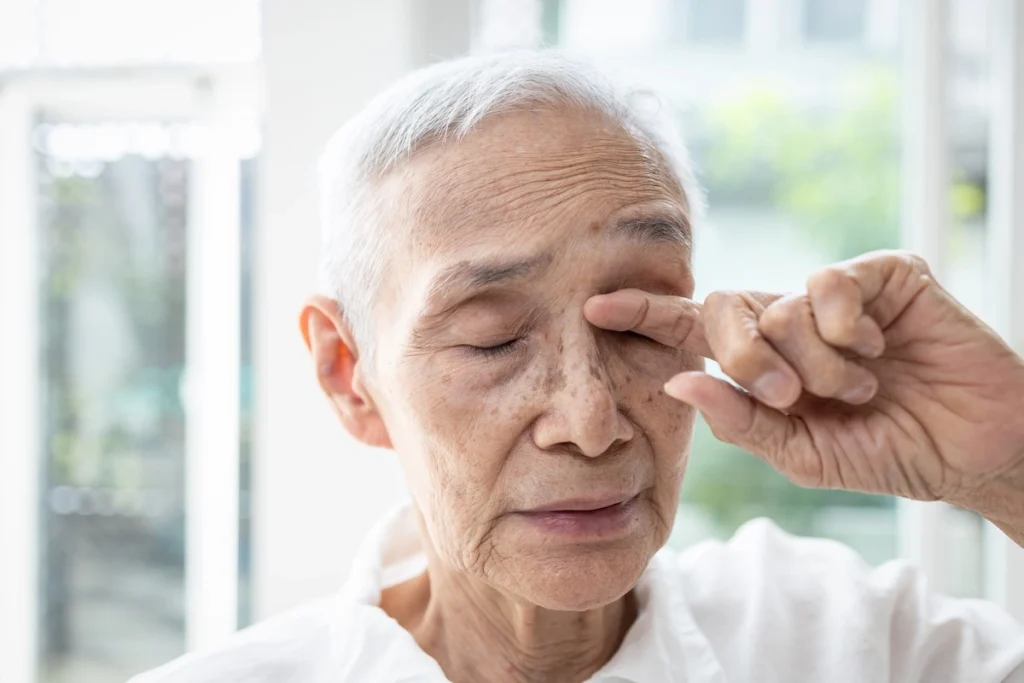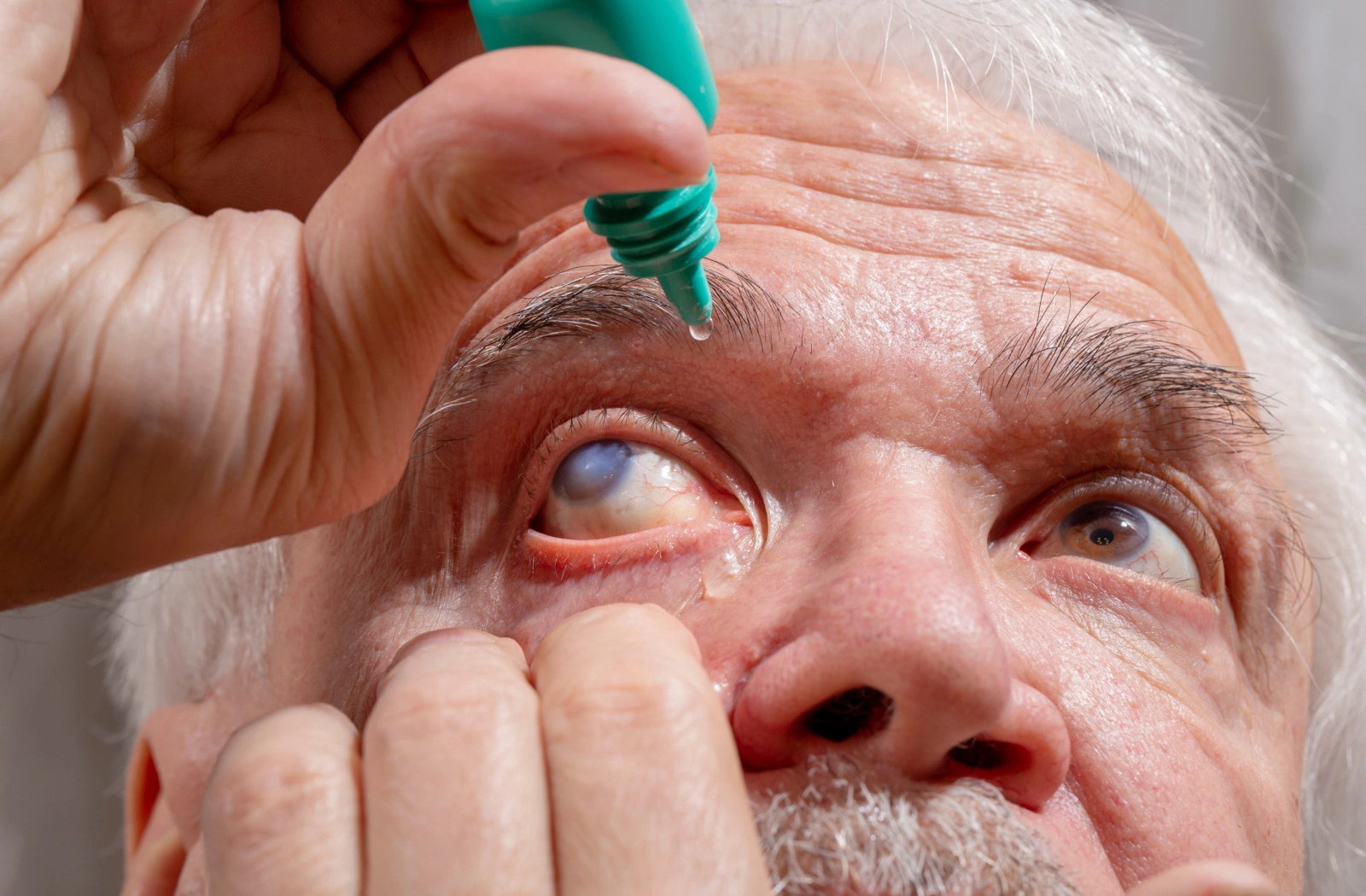
Photosensitivity in the Elderly+ Causes and Treatment
In this article from humanhealthmag, we will examine the cause of eye photosensitivity in the elderly. You may have also experienced that you enter an environment with natural light from a dark place and your eyes are bothered. This is a completely natural reaction and happens to everyone because it takes a while for the eyes to get used to the light, but sometimes this natural reaction lasts longer and causes an eye disease called “photophobia” or sensitivity to light.
Experts believe that light sensitivity in the elderly is not a very important issue in most cases! Because various factors such as colds, allergies and sinusitis, taking certain medications such as antibiotics, dust entering the eyes and then irritating the optic nerves cause the eye pain message to be sent to the brain and the eyes are sensitive to light. In all these cases, by eliminating the problem, the sensitivity will also be cured. Below, we will discuss why and how this type of sensitivity occurs and what treatment options are available.
What is Photosensitivity in the elderly?
Photosensitivity in the elderly is one of the problems that occurs for various reasons. Sometimes in some elderly people, eye infections cause photophobia and the person’s eyes become more sensitive to light than usual in the open air. In this situation, the elderly person has to close their eyes or force them to open while walking and constantly experiences tearing, redness of the eyes and headaches.
For example, the use of substandard and contaminated cosmetic products is one of the most important factors of eye infections, which in addition to severe sensitivity to light, the eyes become red, painful and swollen, and sometimes the swelling of the eyelid is so severe that it prevents the eyes from opening.
In such situations, the elderly or the person with allergies will improve over time by taking medication, but the sensitivity to light will continue for a while and the person should use polarized and dark sunglasses in addition to taking prescription drops.
Even sometimes at home and at night when it is dark because the slightest light is annoying and increases sensitivity. It is good to know that the mirrored lenses of these glasses reflect more light and protect the eyes. Of course, others see these glasses as mirrors. Like ophthalmology in seniors, sensitivity to light is one of the problems that most people experience in old age. So the cause of this problem must be precisely determined and the patient treated.
Causes of Photophobia in Older Adults
What causes light sensitivity in the elderly? There are various reasons for photosensitivity in the elderly, and we will explain the most most common cause of photosensitivity below.
Congenital problems and photosensitivity
- Sensitivity to morning light when waking up is normal and transient. This sensitivity to light is present in most people, but as this trend continues in older ages, people should be examined in terms of eye anatomy so that they are at least less likely to suffer from this problem in old age. For example, cataracts or congenital corneal disease, and of course, seasonal allergies are among the things that cause eye sensitivity to light.
- If the person does not have a specific eye disease and the eye color is not light, we should look for another reason that has caused photophobia. Computer games, PlayStation, mobile phones, tablets, cartoon DVDs that many people use these days can cause eye sensitivity to light and damage the eyes.
Aging and Eye Sensitivity
- Sometimes, light intolerance and sensitivity to light are considered a symptom of aging in older people. In people over 40, eye discomfort due to light reflection, for example from glass, seawater, or snow, is a fairly common issue that occurs as the lens of the eye ages and becomes thicker. Another cause of photophobia, which is more common among the elderly, is the destruction of light-sensitive cells that normally prevent the eyes from being sensitive to sunlight. It should be noted that light sensitivity can be one of the early symptoms of glaucoma, which is accompanied by other symptoms such as vision impairment and pain.

Treatment for photosensitivity in the elderly
To treat photosensitivity in the elderly, you should see a specialist as soon as possible because it is possible that this symptom is an eye disease. Before any treatment, the doctor will examine and anatomically examine the eyes to determine whether the problem is due to infection or corneal problems, or whether it is due to the person’s eyes being bright or working with bright sources such as computers and tablets, or even watching too much TV.
Depending on the results of the examination and diagnosis of the problem, the doctor will prescribe the necessary treatments. If the cause of the sensitivity is excessive work with light sources, the patient is advised to severely limit the use of electronic devices. If the sensitivity is due to light in the eyes, the person should wear suitable sunglasses and a brimmed hat when leaving the house in any weather conditions (cloudy or rainy) to protect the eyes from light damage and sensitivity.
In cases where the structure of the eye is damaged or infected, medication is prescribed. In the meantime, an important thing to remember is that taking a specific medication, such as a blood pressure medication, may have caused photophobia. Therefore, inform your ophthalmologist about the medications you are taking so that, if necessary, he or she can refer you to your doctor and replace you with another medication.
How to Prevent Photophobia?
Now that you know what photosensitivity in the elderly is and how it is treated, it is better to learn about the methods of preventing it. It is difficult to deal with light due to light avoidance, but there are ways to prevent the symptoms of photophobia, including:
- Avoid migraine triggers.
- Taking care of and maintaining eye hygiene is a way to prevent damage to it. Also, never use shared cosmetics.
- Meningitis is one of the causes of photophobia (light intolerance). Prevent meningitis by washing your hands regularly and avoiding infected people.
- Also, avoid areas where mosquitoes and ticks are present and get the encephalitis vaccine.
Concluding Remarks
In this article, we talked about photosensitivity in the elderly. In general, reducing symptoms and preventing severe damage from photophobia can be controlled, but for this, it is better to consult a specialist doctor. The doctor will find the main cause of this disease by examining various symptoms and prescribe treatment accordingly. For the treatment of photophobia (light intolerance), it is also recommended to visit a neurologist.
Could you help us make this content even better? What do you love, and what can we improve? Share your thoughts below, feedback is the key to creating better content for YOU. If you also have an experience in this regard, please share it with us and others.

Frequently Asked Questions
What Causes Photophobia?
Sunlight or harsh, inappropriate indoor light can cause severe and painful conditions for the eyes. Photophobia is not a disease in itself, but rather a symptom of another disease that depends on light.
Which Part of the Brain is Affected by Photophobia?
Deep in the brain, in the thalamus, which controls pain perception and consciousness, there are neurons that create a sensation of intense pain when exposed to light.
Do you Need Glasses for Photophobia?
Normally, you should wear sunglasses. However, if you feel more uncomfortable than usual, you should wear photophobia glasses that provide more protection from light.
